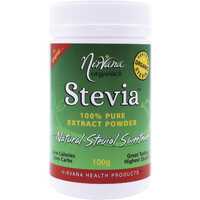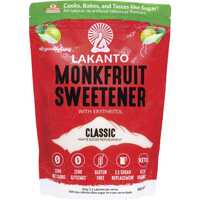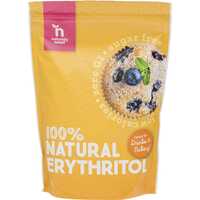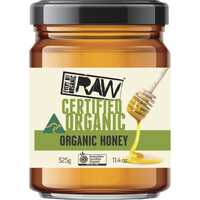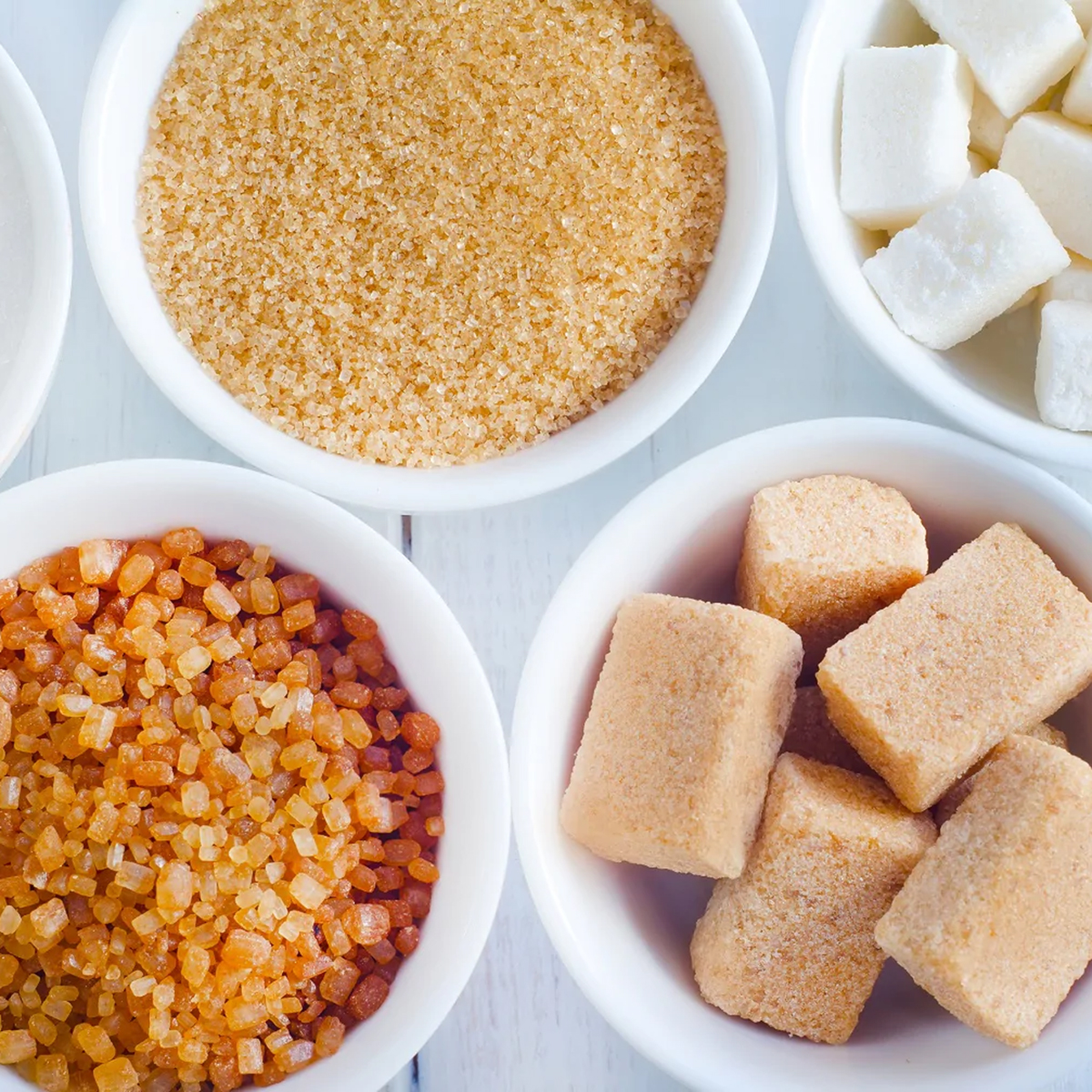There are few things in life more pleasurable than eating sweet food. We consume a variety of different sugars throughout the day, from cakes and biscuits to fruits and milks. The average western diet has become increasingly unhealthy over recent decades, however, and refined sugars are partly to blame. While sugar is produced by plants and natural sugars are essential to life, you can definitely have too much of a good thing.
Let's take a closer look at sugar in its many variations, analyse the sugar problem in modern society, and look at the best natural alternatives to help you satisfy your sweet tooth without the guilt.
What is Sugar?
Sugar is the collective name given to all of the sweet soluble carbohydrates that the body converts into glucose. The most basic sugars are called monosaccharides, which include glucose, fructose, and galactose. These three building blocks make up all carbohydrates, bonding with each other and themselves in a number of complex variations. They regularly combine as compound or double sugars, including sucrose, lactose, and maltose.
Carbohydrates are the main source of fuel used by the body, and sugars are the primary energy reactor. Glucose compounds break down efficiently as energy for the brain, organs, and muscles, which makes them essential for a wide array of everyday activities. It's easy to understand sugar as a particular type of carbohydrate, which together with fat and protein makes up the three macronutrients essential to human life.
Commercial sugar is produced from sucrose, which is a combination of glucose and fructose. This sweet substance is produced by plants through photosynthesis, which is the process used to transform solar energy into food. Some plants are much better at producing sugar than others, with sugar cane and sugar beet offering the highest concentrations by far. You can also consume monosaccharides or simple sugars directly, with fruit and honey incredibly abundant and full of natural sweetness.
Sugars include the following two groups:
- Naturally-occurring sugars include simple and compound sugars, including fructose in fruits and honey, lactose in milk products, glucose in fruits and vegetables, and maltose in many cereals.
- Added sugars are derived from sucrose. These sugars are available in "pure" isolated form or added to existing foods. Along with adding sweetness, sugars can help to extend shelf life and improve food appearance.
The Many Types of Sugar
Like many things in the world of nutrition, not all sugars are created equal. Along with differences between simple and compound sugars, and their many variations, there are also many differences between added sugar products. To make things even more complicated, a growing number of non-sucrose alternatives have hit the market in recent years, many of which offer tremendous nutritional and health benefits.
While all commercial "sugar" products are made by extracting sugar juice from sugar cane or beet, different types and levels of processing create very different end products. Sugar can be categorised by its final colour, crystal size, and level of molasses, among many other variables. From raw granulated and sticky brown products to highly refined white materials, there are lots of commercial sugars on the market. Whether you're adding sugar to tea or making a delicious birthday cake, it's important to be aware of these differences.
The following sugar categories are common across the world:
Raw sugar
Also known as turbinado sugar or demerara sugar, this type of sugar has only been partially processed. Raw granulated sugar consists of large crystals with a blonde to brown colour, and it typically comes from sugar cane.
Brown sugar
There are lots of brown sugars on the market, including muscovado and other products that contain molasses. Along with their dark colour and rich taste, brown sugars are often clumpier due to having a higher moisture content.
White sugar
This processed form of sugar is finely granulated and easy to measure, which makes it popular for cooking and baking. There are lots of white sugars on the market, including icing sugar and other powdered or super-fine products.
What is The Problem With Sugar?
While undeniably delicious, sugar has been associated with a wide array of health problems over recent decades. Too much sugar has been linked with an increased risk of cardiovascular disease, and it's also known to have a negative impact on diabetes, obesity, and tooth decay, among other conditions. While scientists still don't understand the intricate details of how sugar affects heart health, it is known to overload the liver, raise blood pressure, and increase inflammation.
While sugar is a fantastic source of energy, it does not contain any essential nutrients. Due to sugar's delicious taste, addictive qualities, and lack of real substance, it's very easy to over-consume. While there's no essential chemical difference between naturally-occurring sugars and added sugars, the former is more likely to be found in foods that also contain beneficial vitamins, minerals, and fibre.
How Much Sugar is Recommended?
According to the World Health Organization (WHO), "free" sugars should make up no more than 10% of your daily kilojoule intake. The WHO list free sugars as monosaccharides such as glucose and fructose; sucrose and other disaccharides; and natural sugars present in honey, syrups, and fruit juices. This definition doesn't include the natural sugars present in fruits, vegetables, or carbohydrate products. For an adult with a healthy body mass index (BMI), this accounts for around 12 teaspoons or 50 g of sugar per day.
Natural Sugar Alternatives
Over recent years, more and more people have become interested in natural sugar alternatives. There are lots of great products on the market, many of which offer health benefits compared to common sugar. From natural herbs to organic compounds and fine powders, the following products should satisfy any sweet tooth.
Stevia
Stevia is a natural sugar substitute derived from the leaves of the Stevia rebaudiana plant. The active compounds of stevia have 50-300 times the sweetness of sugar, which makes it a highly efficient sweetening agent. This nonnutritive sweetener has almost no calories, which makes it appealing to people who are looking to lose weight. Stevia has been found to significantly lower insulin and glucose levels, and it's also shown promise in managing cholesterol.
Erythritol
Erythritol is a sugar alcohol compound, with other examples including xylitol, sorbitol, and maltitol. This low-calorie sweetener tastes almost like sugar but avoids all of the calories. Erythritol and other sugar alcohol compounds are found naturally in fruits and vegetables, and they can also be extracted in natural powders. Erythritol offers advantages over other sugar alcohols, with minimum calories combined with maximum sweetness.
Monk fruit
Monk fruit is known by many names, including luo han guo or Siraitia grosvenorii swingle fruit extract (SGFE). This sugar alternative comes from a Chinese plant that's 100-250 times sweeter than sugar. Monk fruit sweetener is fairly easy to make, with manufacturers crushing the fruit to extract its fructose and glucose-heavy juice. It's also widely available as a powder, which makes it easy to use as an alternative to caster sugar and other refined white sugars. According to studies, monk fruit extracts have antioxidant and anti-inflammatory properties.
Coconut sugar
Coconut sugar is derived from the coconut palm tree, which makes it distinct from regular palm sugar. Unlike standard sugar products, which are empty in nutrients, coconut sugar is full of iron, zinc, calcium, and potassium. It also contains a number of short-chain fatty acids, including many polyphenols and antioxidants. There is no calorie benefit from coconut sugar, however, which contains a high fructose content and just as many calories as standard table sugar. While too much coconut sugar is definitely not a good thing, this delicious product has a rich nutritional profile.
Honey
If you want to consume less refined sugar, it's hard to go past traditional honey products. Less of a sugar alternative and more of a sweet ancestor, honey has been making things delicious for thousands and thousands of years. Bees produce honey from the sugary secretions of plants, with the fructose and glucose content of this natural substance offering the same relative sweetness as sucrose. While optimal doses for human consumption are still not established, honey may provide benefits in the management of diabetes.
If you're looking for an alternative source of sweetness, Healthy Being has everything you need. We have a wide array of quality products to choose from, including liquid stevia, erythritol powder, monk fruit powder, coconut sugar, and delicious natural honey. Visit our website today and save with heavily discounted prices on thousands of products - with free shipping options across Australia and worldwide delivery!


 Certified Organic
Certified Organic Vegan Friendly
Vegan Friendly  Vegetarian
Vegetarian Organic Ingredients
Organic Ingredients Dairy Free
Dairy Free Gluten Free
Gluten Free Keto Friendly
Keto Friendly


























